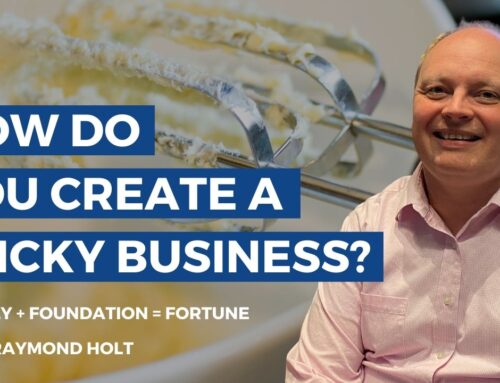The United Kingdom just scraped into the 2017 World Happiness Report, coming in at number 19 on the annual list. It’s an improvement on 2016, when the UK achieved four places lower, but we can surely do better still.
For reference, Ireland was 15th on the list, the United States 14th, while Norway was deemed the world’s happiest country.
Various studies would have you believe that business owners are happier than most. For example, a study from researchers at ETH Zurich found that entrepreneurs display more positive emotions and fewer negative emotions on social media.
However, could it be the case that owners are putting on something of a front for the sake of the success of their business?
Beki Stevenson of Yorkshire-based business Berber Leather believes this theory bears some truth. Speaking to Virgin, she said: “I think entrepreneurs are more likely to be aware of the overall image they are portraying of themselves or their brand on social media and so may be more cautious in what they say to the world.”
It’s an example which proves that success and happiness are not the same thing. In fact, sometimes success can come at the cost of happiness.
Of course, for some people, success and happiness will go hand in hand. For others, though, their happiness won’t be quite so tangibly linked to success. Only you know what happiness and success look like for you.
Or perhaps you don’t know what it looks like at all. Happiness can be a complex beast. It often takes a good deal of self-awareness and planning to be truly happy – but it’s always worth taking the necessary steps towards happiness.
Why does it matter?
Happy business owner = happy business. By doing all you can to facilitate your employees’ happiness, the business will stand a greater chance of being successful, which will have an impact on your happiness as a business owner. While we say that success and happiness are not the same thing, for most people, their professional success will be a factor in their contentment.
Owners have the ability to set the tone for the entire business. If you embed a culture of happiness nice and early, there’s a great opportunity to make it a base from which you do business.
The benefits of doing so are very real. There are obvious positives from a health and well-being perspective, for instance. With the number of people that have experienced mental health problems, while in employment, having grown from a quarter to a third over the last five years – as per recent CIPD research – there’s a clear need for owners to start prioritising mental health initiatives within their wellbeing strategies.
Creating a culture of happiness can also be game-changing from a talent attraction perspective. Everybody wants to work for a happy and successful organisation, while it’s also easier to retain talent if they feel content and appreciated on a daily basis.
It might even stop millennials looking for the exit door. The younger generation is more aware of success and personal happiness, and are prepared to move on to pastures new if they don’t get it. Bloomberg’s annual Global Millennials survey revealed that two-thirds of millennials plan to leave their current organisation by 2020.
So, where to start?
Some people believe that by making others happy, we can make ourselves happy, too. However, there’s a risk that you’ll spend all your time trying to make others happy and not take the necessary steps to look after yourself. Ultimately, you need to know yourself before you know others.
It takes self-awareness and self-confidence to be able to identify what it is that will make you happy and then set off on that journey to personal success and happiness.
You need to be able to articulate what standing at the top of your own mountain looks like. So, draw up a list of the things that make you happy and start building a vision and a plan of how to get there. Remember, too, that your picture of what happiness looks like must be realistic and achievable, otherwise you’re only setting yourself up for a fall.
It’s all about taking small incremental steps on a regular basis – long-term happiness is not something that can be achieved overnight. It’s a perceptual journey, on which your idea of what happiness will look like will change and evolve. Embrace the diversions, reward yourself for personal success, and bottle those moments of pure contentment – that way you will know what your happiness truly looks like.
Why does Agnentis Partners care about your success and happiness?
We understand that you can’t leave your work at the front door, and you can’t always leave your personal life out of your work affairs, either. Success and happiness are both personal and professional.
That’s why we take both a professional and personal interest in the success and happiness of you and your business when we work with you. In the SME space, rarely can you separate the business and the individual behind it – they have to be considered as a whole.
We believe that the happier you are personally, the better chance you stand of being a success professionally, and vice versa. So, when we ask what success and happiness looks like to you, don’t be too taken aback – there’s a good reason for it.
Stat sources:






